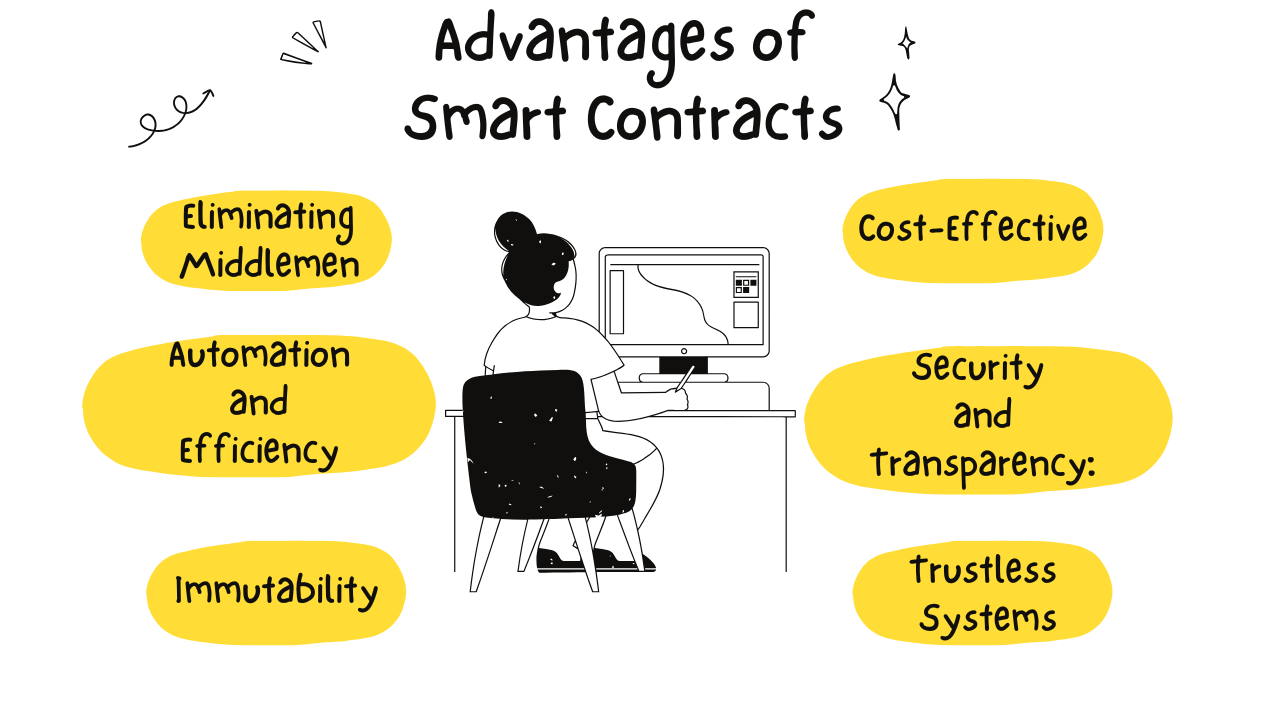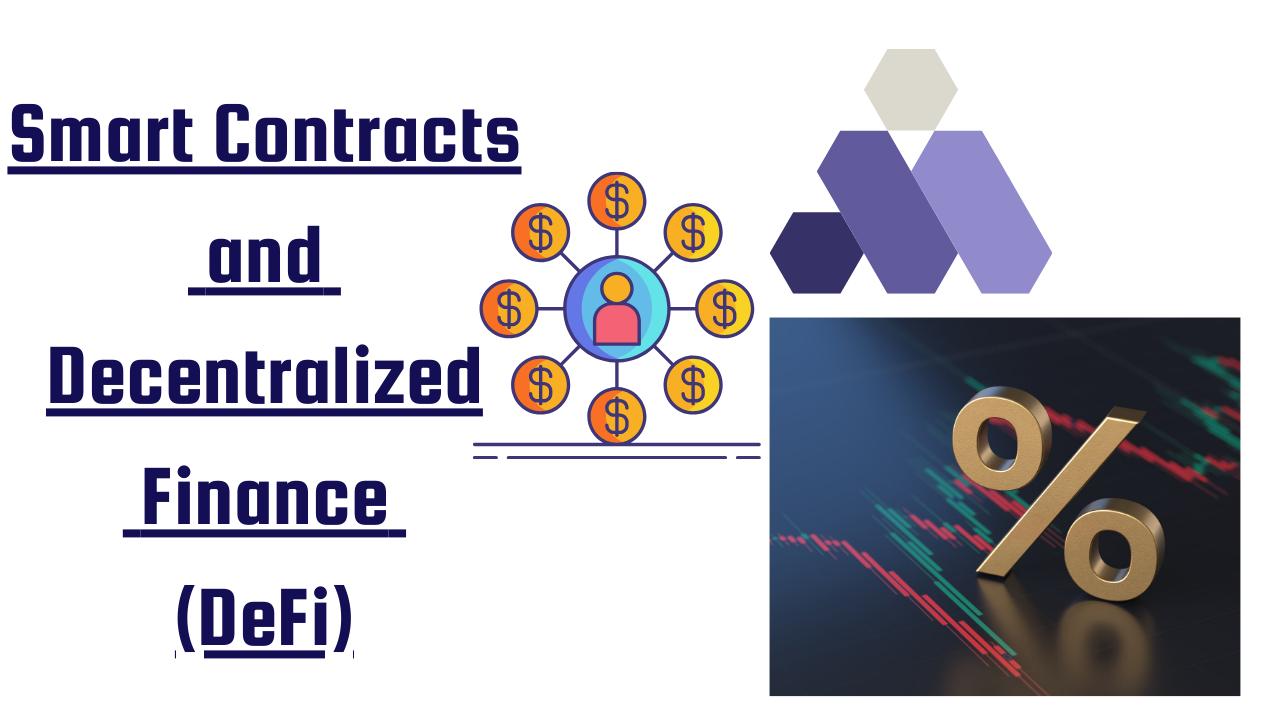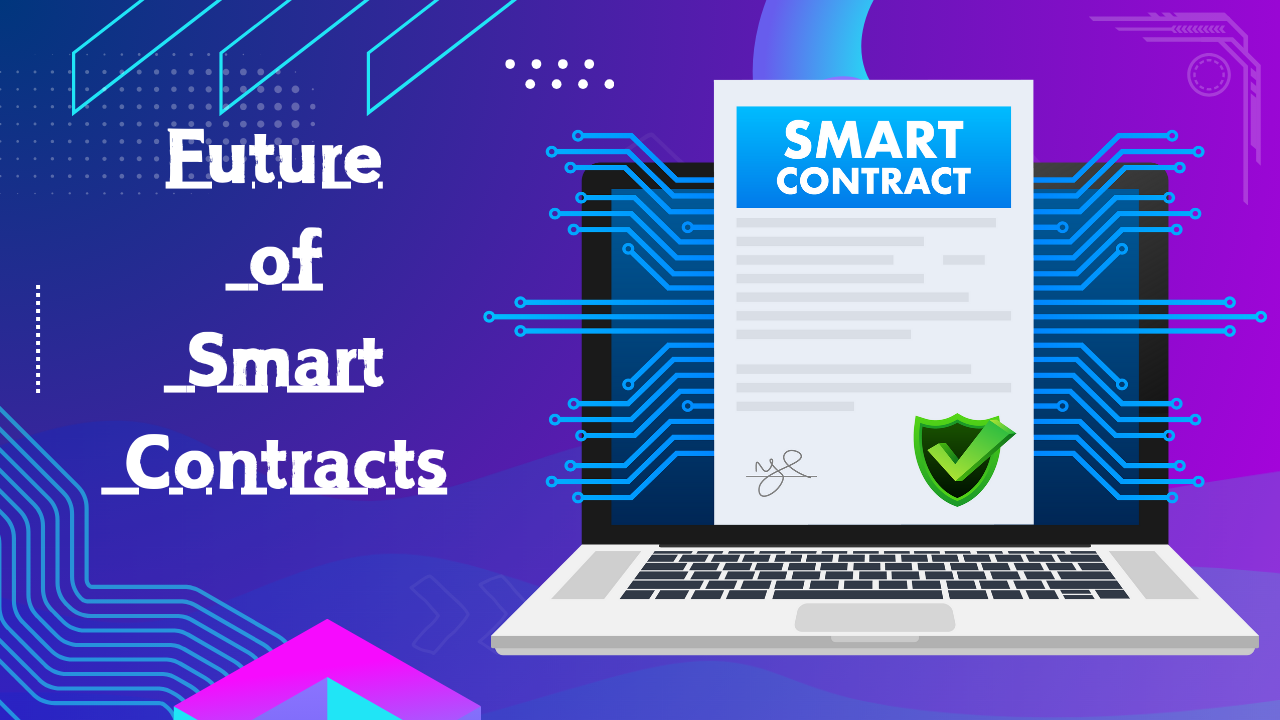Blockchain technology has been transforming industries by decentralizing control and enhancing transparency. At the heart of this revolution are smart contracts, which have dramatically altered how transactions are handled. These self-executing contracts automate agreements between parties, ensuring that transactions are processed without intermediaries. The implications are vast, affecting everything from finance to supply chains. In this article, we’ll explore how smart contracts work, their benefits, use cases, challenges, and the future of blockchain transactions.
What Are Smart Contracts?
At its core, a smart contract is a self-executing code that runs on a blockchain. The contract is programmed to automatically enforce, verify, or execute the terms of an agreement once predefined conditions are met. Think of it as a traditional contract but without the need for intermediaries, like lawyers or notaries.
The primary language used for coding these contracts on Ethereum, the most popular platform, is Solidity. They run on decentralized networks, like Ethereum, ensuring that they are tamper-proof and secure. Once deployed on the blockchain, they become immutable, meaning no one can alter the terms without the consensus of the involved parties.
How Do Smart Contracts Work?
Smart contracts follow a simple “if-then” logic. For example, “if X condition is met, then Y action will occur.” The blockchain ensures that once the predefined conditions are fulfilled, the contract executes autonomously.
Here’s a simple example:
- Party A agrees to pay Party B 5 ETH (Ethereum) on the condition that Party B delivers a specific product by a certain date.
- The smart contract is programmed to hold the 5 ETH in escrow.
- Once Party B delivers the product, the contract verifies the condition and releases the 5 ETH to Party B.
- If the product isn’t delivered within the agreed timeframe, the funds are returned to Party A.
Advantages of Smart Contracts
Eliminating Middlemen: Traditionally, contracts require intermediaries such as banks, brokers, or lawyers. Smart contract eliminates these middlemen, reducing costs and speeding up processes.
Automation and Efficiency: Smart contract executes automatically once conditions are met, minimizing delays and errors associated with manual processes.
Security and Transparency: Once deployed, these contracts are secure and transparent. Every transaction is recorded on the blockchain, ensuring that it is tamper-proof and auditable.
Cost-Effective: Without the need for intermediaries, transaction costs are significantly reduced. Automation also lowers administrative overhead.
Immutability: Once on the blockchain, the terms of a smart contract cannot be altered without network consensus, making it highly secure against fraud or tampering.
Trustless Systems: Since these contracts operate on decentralized networks, trust is established through code rather than relying on a central authority.
Use Cases of Smart Contracts
These are not limited to one specific industry. Their versatility allows them to be used in various sectors:
Financial Services
One of the most significant impacts of these contracts is in the financial sector. They can automate payments, loans, and insurance claims. For example, decentralized finance (DeFi) platforms use smart contracts to manage loans, trading, and other financial services without the need for banks.
Supply Chain Management
In supply chain management, smart contracts can ensure the smooth and transparent flow of goods from suppliers to customers. For instance, a smart contract could be set to release payment to a supplier only when the goods reach the retailer, verified by IoT sensors.
Real Estate
Smart contracts streamline real estate transactions by automating the transfer of property ownership once conditions (like payment) are met. Title transfers and escrow processes, which traditionally take weeks, can be executed instantly with smart contracts.
Healthcare
In healthcare, these contracts can automate patient data sharing and insurance claims. A patient’s medical records can be securely stored on the blockchain, and access can be granted to providers through smart contracts. Additionally, insurance claims can be processed automatically, reducing fraud and paperwork.
Intellectual Property and Royalties
Smart contracts allow creators to be paid automatically once their work is purchased or used. For example, musicians or authors can have royalties distributed through these contracts based on sales or streaming data.
Smart Contracts and Decentralized Finance (DeFi)
One of the most revolutionary areas where these contracts have gained traction is decentralized finance (DeFi). DeFi platforms leverage smart contracts to automate and execute financial services like lending, borrowing, trading, and investing without intermediaries. This removes the need for traditional financial institutions, lowering costs and increasing accessibility. For example, smart contracts can automatically distribute interest payments or enforce loan agreements, ensuring transparency and security. In the DeFi ecosystem, these contracts allow users to retain control over their assets while engaging in financial activities. As the DeFi sector continues to grow, smart contracts are expected to play an even more significant role in democratizing finance by making it more inclusive and efficient.
Smart Contracts in Supply Chain Management
Another critical area where these contracts are revolutionizing processes is in supply chain management. Traditional supply chains often suffer from inefficiencies, delays, and a lack of transparency. Smart contract can streamline the flow of goods, services, and payments across supply chains by automating key processes.
For example, the smart contract can trigger payments once a product reaches a specific location or when predefined conditions are met. This increases efficiency, reduces errors, and ensures that all parties involved in the supply chain have real-time access to essential data, improving trust and accountability.
Legal Contracts and Smart Contracts: Bridging the Gap
Legal agreements are another area where smart contracts are making waves. Traditional legal contracts are often cumbersome and costly to enforce. With these contracts, many elements of legal agreements can be automated, from verifying terms and conditions to ensuring that the parties involved meet their obligations.
For instance, an employment contract could include a smart contract that automatically releases payment upon the completion of agreed milestones. This removes the need for third-party enforcement and reduces the likelihood of disputes. Although contracts are not a direct replacement for legal contracts, they have the potential to augment the legal process, particularly in automating routine transactions.
Challenges in Implementing Smart Contract
Despite their many advantages, smart contract face several challenges:
The complexity of Coding: Writing flawless code for smart contracts is challenging. Any bugs or vulnerabilities in the code can result in irreversible errors, such as loss of funds. This was exemplified by the infamous DAO hack in 2016, where hackers exploited a vulnerability in an Ethereum-based smart contract, leading to millions of dollars in losses.
Legal Status and Regulation: Smart contracts are still in a gray area legally. Different countries have varying stances on the enforceability of digital contracts. Legal frameworks need to evolve to accommodate these decentralized contracts fully.
Lack of Flexibility: Once a smart contract is deployed, it cannot be altered. This immutability is a double-edged sword; while it ensures security, it also means that errors in the contract cannot be corrected easily.
Scalability: As the number of smart contracts on a network grows, scalability becomes an issue. Platforms like Ethereum are still struggling with transaction throughput, leading to high gas fees during peak usage.
Security Vulnerabilities: While these contracts are secure in theory, they are not immune to hacking if poorly written. Malicious actors can exploit flaws in the contract’s code.
Future of Smart Contracts
The future of these contracts is promising, with several advancements on the horizon:
Improved Scalability
Scalability remains one of the biggest challenges for blockchain networks like Ethereum. Solutions like Ethereum 2.0 and layer-2 scaling solutions such as Optimistic Rollups and zk-Rollups are set to increase transaction speeds and lower fees, making smart contracts more practical for widespread use.
Legal Recognition
As blockchain technology becomes more mainstream, governments and regulatory bodies are starting to recognize the potential of smart contracts. We can expect more jurisdictions to develop legal frameworks that recognize contracts as binding and enforceable agreements.
Interoperability
Future blockchain networks will likely become more interoperable, allowing smart contracts to communicate across different blockchains. This could lead to even more widespread adoption as businesses and industries take advantage of multi-chain ecosystems.
Integration with AI and IoT
Smart contracts will likely integrate with other emerging technologies such as Artificial Intelligence (AI) and the Internet of Things (IoT). For example, IoT devices could trigger contracts automatically, and AI could be used to optimize contract terms.
Conclusion
Smart contracts are undeniably revolutionizing blockchain transactions. By eliminating intermediaries, reducing costs, and providing unprecedented transparency and security, contracts are transforming industries ranging from finance to healthcare. While challenges like scalability, regulation, and security vulnerabilities remain, the future of these contracts looks promising. As blockchain technology evolves, we can expect to see even greater innovation in how these digital contracts are used to facilitate transactions, streamline business processes, and redefine trust in the digital age.
FAQs
What is the primary benefit of using smart contracts?
They automate and secure transactions without intermediaries, reducing costs and increasing efficiency.
Can smart contracts be altered once they are deployed?
No, They are immutable once deployed on a blockchain, ensuring the integrity of the agreement.
Which industries benefit the most from smart contracts?
Financial services, supply chain management, healthcare, real estate, and intellectual property are key sectors benefiting from these contracts.
What programming language is used for smart contracts?
Solidity is the most popular programming language for developing contracts on the Ethereum blockchain.
What are the challenges of using smart contracts?
Key challenges include coding complexity, legal recognition, lack of flexibility, and scalability issues on blockchain networks like Ethereum.
